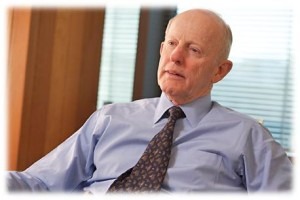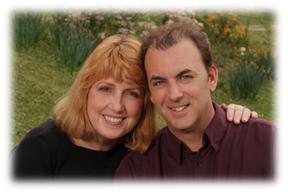Whether you were running around the cavernous halls of the Rosen Shingle Resort hotel last week in Orlando or you simply read about the 2013 Radio Show in the trades or in yesterday’s post from Lori Lewis, I’m betting that if I asked you about the main takeaways of the conference, two things would come to mind.
First, the “connected car” became a front and center issue at the conference. Thanks to the vision of the NAB, the RAB, and Arbitron, our “Radio & The Connected Car” Super Session had a lot of people talking about an issue that is destined to become front and center in radio. I was proud to be a part of it, along with Strategy Analytics’ Roger Lanctot (who did an amazing job), as well as the guidance of Arbitron’s Bill Rose and Dr. Ed Cohen, and the vision of Erica Farber.
These things don’t happen by accident, and the planning, time, and effort that went into this session were all worth it. It was also great to have a SYNC-enabled Ford Fusion on hand, thanks to the efforts of Cox Orlando’s Susan Larkin and Tammie McGrath, and local dealership Tropical Ford.
But I believe the second big takeaway is all about “live & local,” a theme that resonated in session after session, as well as at the Marconi Awards dinner. It started as a subtle drumbeat, but by the end of the Radio Show, it had become ubiquitous and thunderous. As the Marconi winners took the stage, they were increasingly louder and prouder to tell the packed room that their honor was due to the fact that their stations are, in fact, “live & local” – invested in talent and dedicated to serving their communities of license.
Perhaps it started with Larry Wilson at the Leadership Breakfast. He was quoted as saying that “Voicetracking is dead. It’s a waste.” And as one of the trades pointed out, he offered the “live and local” mantra at every opportunity.
And it continued throughout the conference. During the “Radio & Connected Car” Super Session, a number of our videos featuring automotive executives extolled the virtues of local radio content and talent. A case in point was Ford’s Jim Buczkowski who noted that radio’s continued relevance in the cars of the future will come down to this: “The content that is going to be most important for broadcasters…especially local content – is from my hometown or from places I like…and I like the personalities…that’s what it’s going to continue to about for radio.”
Here’s the segment I showed that sums up all of these experts talking about radio’s future. And again, you hear this “live and local” theme continue to permeate these conversations.
>EMAIL RECIPIENTS: CLICK HERE TO WATCH “THE FUTURE OR RADIO IN THE CAR<
Then there was the Marconi dinner, as icons from Jerry Lee in Philadelphia to broadcasters from small market stations (like WKDZ in Cadiz, Kentucky) took the stage to say a few words about their honored station or show. Winner after winner declared that the “live & local” philosophy explains why they were standing on that stage. And whether it was Dan Mason picking up the award for WBBM or Monk & Kelly (pictured below) the husband/wife morning team from WGSQ in Cookeville, Tennessee, they all said pretty much the same thing – it’s about being live & local.
The next day, Larry Rosin presented his updated at-work study to a crowded room. For broadcast radio, the reality is that in the workplace, Pandora, SiriusXM, and streaming radio channels are having an erosive impact on AM/FM’s leadership position in cubicles, warehouses, and retail stores. One of his big takeaways?
“Your brand IS ‘Live and Local’”
 And finally, NAB Award winner Ginny Morris, who runs Hubbard Broadcasting, brought her entire family – including patriarch Stanley S. Hubbard – to Orlando to celebrate her honor. Back when I worked for Frank Magid more than three decades ago, Mr. Hubbard was our biggest client. Their philosophy then is their philosophy now – it is all about being live and local and serving the communities in which they own broadcast stations. The fact that Hubbard stations cleaned up by taking multiple Marconi awards the evening before was not lost on the luncheon crowd.
And finally, NAB Award winner Ginny Morris, who runs Hubbard Broadcasting, brought her entire family – including patriarch Stanley S. Hubbard – to Orlando to celebrate her honor. Back when I worked for Frank Magid more than three decades ago, Mr. Hubbard was our biggest client. Their philosophy then is their philosophy now – it is all about being live and local and serving the communities in which they own broadcast stations. The fact that Hubbard stations cleaned up by taking multiple Marconi awards the evening before was not lost on the luncheon crowd.
It’s interesting that perhaps we are now looking at the radio business at a very interesting moment in time when there are two competing philosophies – one that espouses being live and local, committed to Main Street, service, personality, and community – and the other that is scalable, networked, and voicetracked as much as possible to keep costs under control and pay down the debt. That’s not to say that the latter group is not about charity or community or having a hometown presence. But for whatever it was worth, the Marconi Award winners were dominated by those in the “live & local” group.
 And like the rift that is happening right now today in Washington, radio is now profiling as two very different industries, each working hard to prove that their way is the best way. Sure, there are many broadcasters who take the hybrid approach. Some of their stations are intensely live and local, while others are being run more like HMOs. These competing philosophies are beginning to define the differences between stations, and the battle plays out every day in markets from Philly to Pensacola.
And like the rift that is happening right now today in Washington, radio is now profiling as two very different industries, each working hard to prove that their way is the best way. Sure, there are many broadcasters who take the hybrid approach. Some of their stations are intensely live and local, while others are being run more like HMOs. These competing philosophies are beginning to define the differences between stations, and the battle plays out every day in markets from Philly to Pensacola.
Two competing approaches in market after market. And whether you’re talking about the workplace, the car, on smartphones, or streaming on computers, there will be winners and there will be losers.
May the best broadcasters win.
- Is It Time Your Radio Station Did A “Cameo?” - January 16, 2025
- Media In 2025: Believe It Or Not! - January 15, 2025
- Every Company Is A Tech Company - January 14, 2025




Great blog — live and local is a commitment from the top down. One of the scariest parts of being in a PPM market is “paralysis by analysis”, we exist in a week to week world that encourages course correction and second guessing. These broadcasters in this column are passionate, focused and on the same page. Wonderful examples of what we should aspire to be in radio (and business).
Agree – the PPM dilemma is a real one, as you know. Personalities earn the right to be…personalities. And I realize there is a chicken-and-egg of it. As you suggest, Jim, managers have to hire, train, and coach well, and then (hopefully) have the confidence in their talent to let them do what they do. It’s always more complicated than that, but there’s no doubt that the vast majority of winners on that Orlando stage last week fall into that category. Appreciate the perspective.
I am always ALWAYS reminded of legendary ad man Howard Gossage when he said “People don’t read print ads, they read what interests them… and *sometimes* it’s a print ad.”
Not hard to remove “print ad” and replace it with “radio” (or blogs, or tv shows, or books, or live plays).
If we continue to believe we are glorified song arrangers, we die. If we entertain and serve our communities… we thrive.